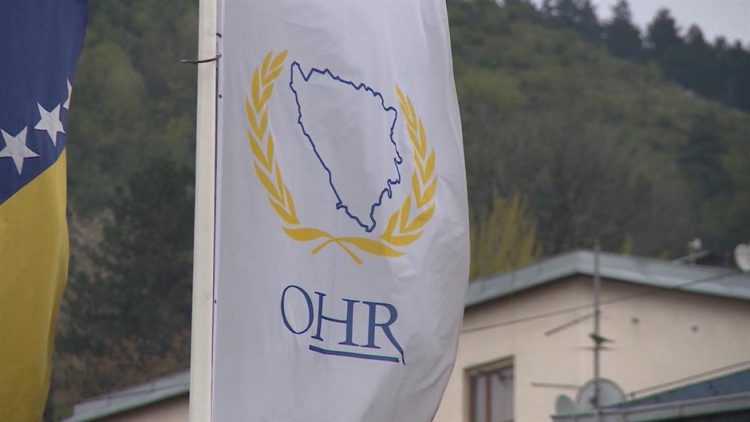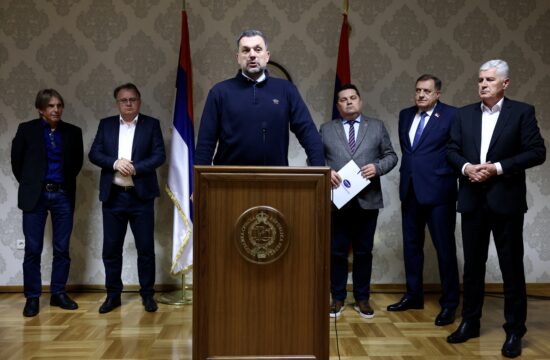
It is regretful that Bosnia still lacks a law that bans the denial of genocide and the country's leadership should work on adopting it, the Office of the High Representative (OHR), in charge of overseeing the civilian implementation of the 1995 Dayton Peace Agreement which ended the Bosnian war, told N1 on Friday.
Despite many verdicts confirming that a genocide took place in Bosnia, the country still lacks a law banning the denial of it.
When asked whether the OHR plans to impose such a law, the Office said that “the need for the adopting it is more than obvious.”
“The newly elected Bosnian authorities have the opportunity to show their commitment to the rule of law and good governance and to adopt all the relevant laws,” the OHR said.
The most recent confirmation that what happened in Bosnia was a genocide was seen on Wednesday, when the International Residual Mechanism for Criminal Tribunals (IRMCT) sentenced former Bosnian-Serb leader Radovan Karadzic to life in prison for crimes against humanity and his involvement in the 1995 Srebrenica genocide, among other things.
In April 1993, the UN had declared the besieged enclave of the eastern Bosnian town of Srebrenica a safe area under UN protection.
However, in July 1995, the Dutch battalion soldiers failed to prevent the town's capture by the Bosnian Serb forces and the massacre that followed.
More than 8,000 Bosniak men and boys were killed in the days following July 11, 1995, and so far the remains of more than 6,600 have been found and buried.
Before the Karadzic verdict, two international courts, The International Criminal Tribunal (ICTY) for the Former Yugoslavia and the International Court of Justice (ICJ), ruled that the massacre was an act of genocide.
The ICTY sentenced Karadzic to 40 years in prison in 2016 for crimes against humanity, including the ethnic cleansing of Bosniaks and Croats, the siege of Sarajevo, the Srebrenica genocide and for taking UN peacekeepers hostage.
He was acquitted of genocide in other municipalities in Bosnia.
Both Karadzic and the prosecution appealed the 2016 judgement.
On Wednesday, the IRMCT, which took over the unfinished job of the ICTY once it closed its doors in 2017, handed down the final verdict sentencing the former Bosnian Serb leader life in prison.



